Personalized scalp care is like that tailored suit that just fits perfectly—because everyone’s scalp has its own unique quirks and demands. A one-size-fits-all approach with standard products might not truly address what your scalp needs. Imagine trying to fix a sensitive, flaky scalp with harsh chemicals meant for oily skin. It wouldn’t end well, would it? Personalized care, however, takes you and your scalp’s uniqueness into account.
Why settle for generic when you can have a hair care routine custom-built for you? The difference between generic stuff and personalized options is like night and day. Standard products might be good for the masses, but let’s face it, not everyone has the same hair or scalp type. In contrast, personalized scalp care can target specific needs, ensuring better results over time.
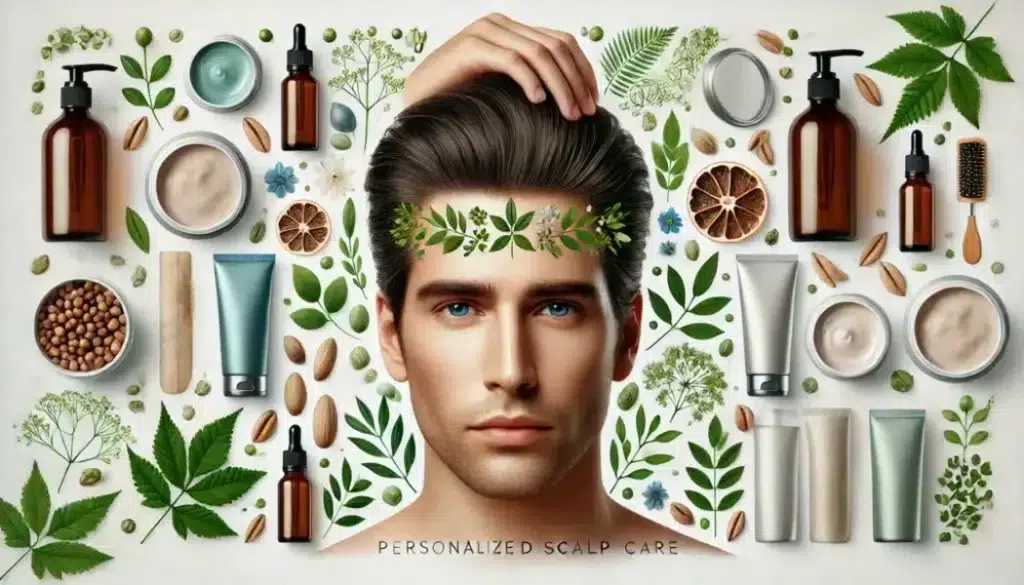
Different scalp types like oily, dry, sensitive, or even dandruff-prone, need different TLC. An oily scalp, for instance, would benefit from clarification and balance, maybe with salicylic acid or activated charcoal, while a dry one would crave moisture with ingredients like aloe vera or coconut oil. Understanding these needs is pivotal in fostering a healthy scalp environment.
The perks of a personalized approach keep stacking up. Not only do you see immediate improvements, but your scalp’s health thrives long-term too. Instead of fighting symptoms like itchiness or flakes, you’ll tackle the root of the problem. This means healthier hair growth and a happier scalp overall.
Ultimately, why wouldn’t you want the best for your scalp and hair? It’s about making choices that consider your unique situation, leading to healthier outcomes. By investing in personalization, you’re embracing the full potential of your hair and giving it room to shine.
🔍 Identifying Your Scalp Type
Knowing your scalp type is like having the secret code to unlock the best care routine possible. It’s all about applying the right solutions to the right problems. But the trickiest part? Figuring out exactly what’s going on up there.
Oily scalp leaving your hair looking greasy halfway through the day? You might notice extra shine or the need to wash your hair more often than you’d like. Dry scalps, on the other hand, can make it seem like you’re constantly fighting a desert, with itchiness and flakes making an appearance.
Sensitive scalps can throw unexpected curveballs at you. Redness, tightness, or even a burning sensation can indicate your scalp needs a gentle touch. Dandruff-prone types deal with those pesky flakes that make wearing black a bit of a gamble.
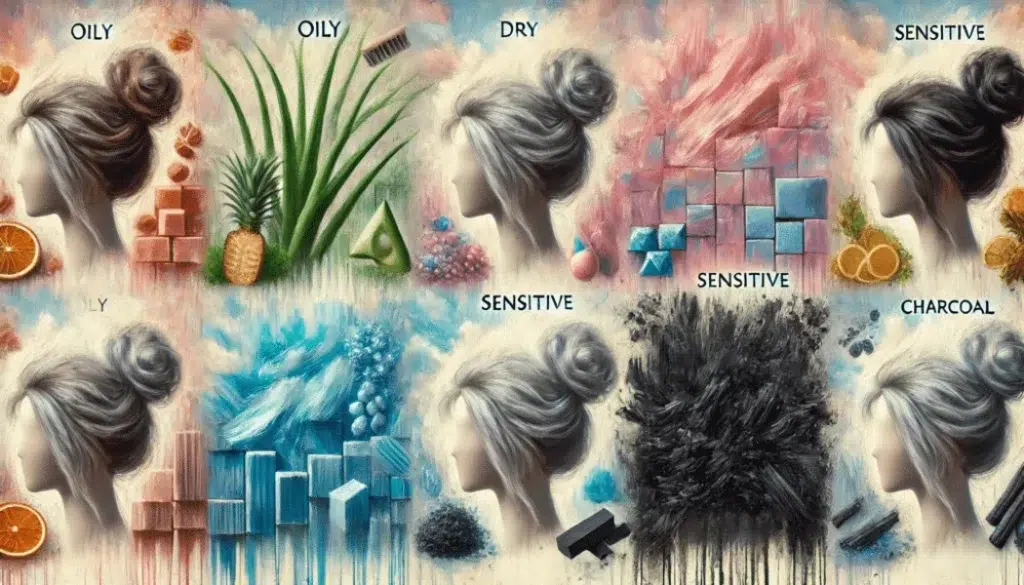
Spotting signs of an unhappy scalp is crucial. If you’re finding patches of soreness, excessive itchiness, or flaking that doesn’t quit, these are clear signals that something’s amiss.
To get a solid understanding of your scalp type, observe the patterns over time rather than on a single occasion. Try using a blotting paper trick: gently pressing it on your scalp for a few seconds to see how much oil transfers. This simple test can give you a glimpse into whether you’re oily or not so much.
Understanding these subtle hints helps in tailoring your routine effectively. Once you crack the code of your scalp type, you’ll be better equipped to choose products and treatments that deliver real results. Trust me, your hair will thank you for it!
🧪 Impact of Scalp Problems on Hair Growth
Understanding how scalp issues snag the growth of those luscious locks is key to tackling them head-on. It’s not just about looking good; a healthy scalp is a foundation for strong hair.
Inflammation is a silent enemy. Often, it’s a result of irritants or untreated dandruff that can mess with the hair follicles. This repeated invasion can weaken hair strands, leading to breakage and thinning.
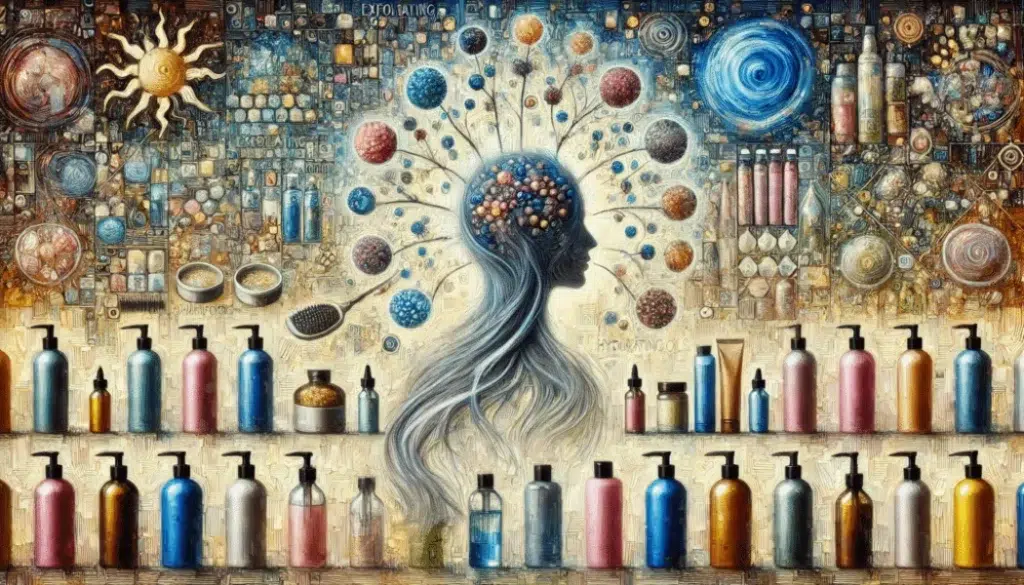
Dandruff does more than just sprinkle flakes onto your shoulders. It can build up, clogging the hair follicles and slowing down growth. The scalp can then become a not-so-friendly place for new strands to take root.
Clogged pores are another culprit. Whether from excess sebum or product buildup, these congestion points make it hard for hair to push through. This isn’t just true for oily scalps; anyone can experience this frustrating block.
Personalized care steps in here like a hero. By focusing on your unique issue—be it dandruff control, calming inflammation, or unclogging those pores—you can essentially clear the path for healthier growth.
Addressing the specific scalp problem you’re facing can mean the difference between brittle strands and a thick, full head of hair. It’s about giving hair the best chance to grow and thrive.
🌿 Choosing the Right Ingredients for Your Scalp Type
Getting the right ingredients for your scalp is like planting a garden with the perfect soil — it can make all the difference. Each scalp type has its star players. For oily scalps, ingredients like salicylic acid, tea tree oil, and activated charcoal are game-changers. They work to balance sebum levels without stripping essential oils.
If your scalp’s more on the dry side, it screams for moisture. Look out for hydrating champions like hyaluronic acid, aloe vera, or jojoba oil. These ingredients soothe and quench, helping to banish flakiness and tightness.
Sensitive scalps need a gentler touch, and that’s where ingredients like chamomile, panthenol, and niacinamide come into play. They’re calming and reduce irritation, ensuring your scalp stays in a happy state.
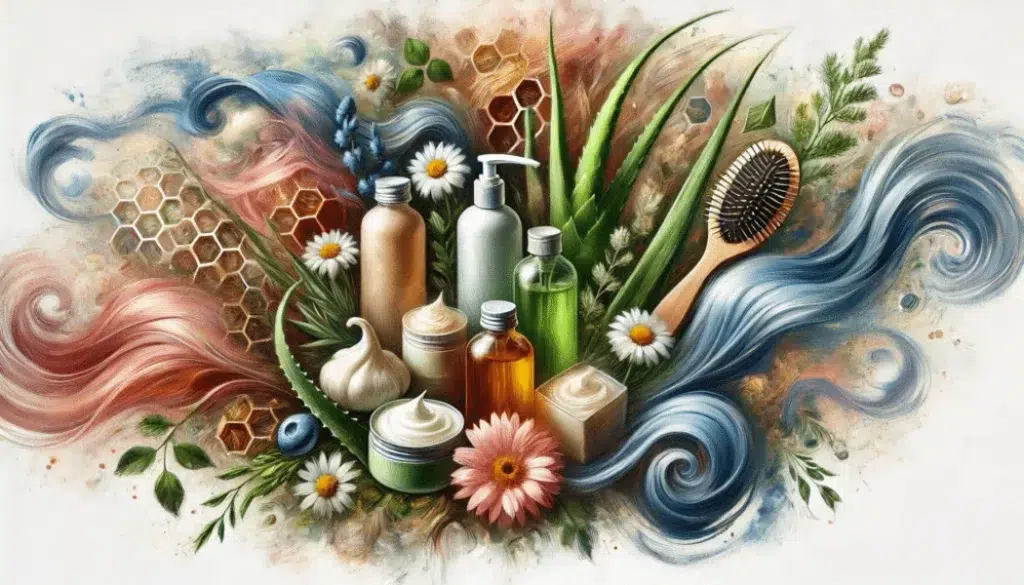
Navigating ingredient labels might feel like wading through alphabet soup, but it’s worth the effort. Natural ingredients and gentle chemicals have their strengths, and finding a balanced formula can give you the best results.
Ultimately, knowing which ingredients line up with your scalp needs is essential. It can save you from a lot of trial and error, leading to a more effective and satisfying scalp care routine.
🧴 Selecting Optimal Shampoos and Treatments
Choosing the right shampoo is crucial—not just any off-the-shelf bottle will do if you’re serious about scalp health. You really want to avoid sulfates and parabens because they can be harsh, stripping your scalp of its natural oils and causing unnecessary dryness or irritation.
Exfoliating shampoos and sebum-balancing treatments could be your new best friends, especially if you’re dealing with buildup or excessive oiliness. These products gently scrub away residue and regulate oil levels, making your scalp much happier.
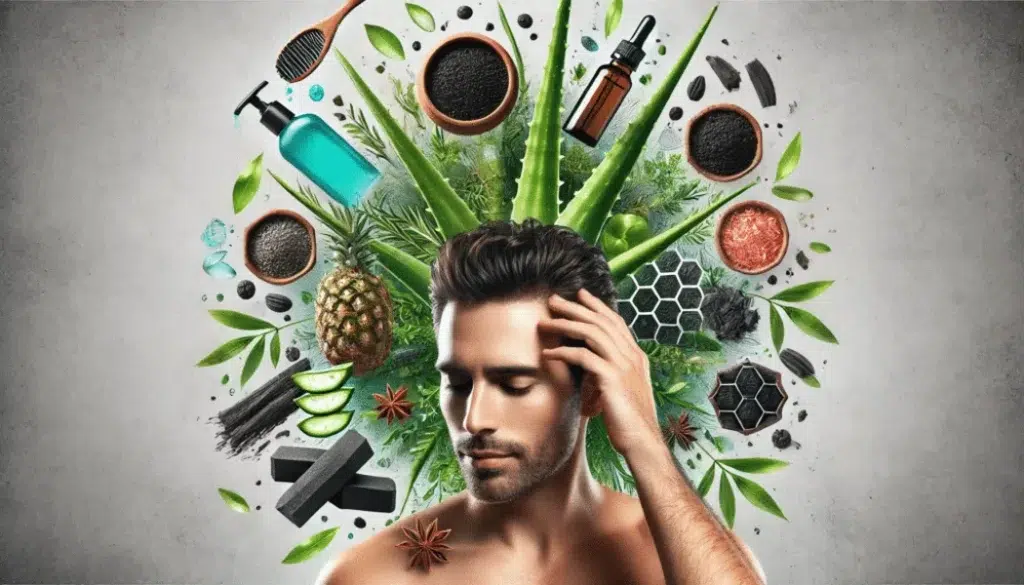
Scalp exfoliants deserve a special mention. They come in physical or chemical forms, each with its own benefits. Physical exfoliants offer a grainy texture to lift away dead skin, while chemical ones dissolve build-up without the gritty feel.
Before diving into a new scalp treatment product, doing a patch test is wise. Apply a small amount on a discreet area to see any adverse reactions before you go full scale. And remember, patience is key. Give new products several weeks to work their magic before judging results.
Harmonizing your product lineup can also make a big impact. Oils might seem counterproductive for oily scalps, but they can provide balance when used correctly. It’s all about understanding the correct order and application for maximizing benefits.
Want to know who’s behind the science? ✍️ Read more about the author.

❓ FAQ: Your Scalp Care Questions Answered
🧴 How often should I exfoliate my scalp?
Once a week is enough for most people. Overdoing it can lead to irritation or dryness. If you use a lot of styling products or dry shampoo, you may benefit from gentle exfoliation twice a week.
🌡️ What’s the ideal water temperature for washing my scalp?
Lukewarm water is best. Hot water can strip your scalp of natural oils, leading to dryness and itchiness. Cold water, while invigorating, may not effectively remove buildup
🌿 Can I use natural oils on my scalp?
Yes — oils like jojoba, tea tree, or rosemary can nourish the scalp, reduce inflammation, and promote hair growth. Just avoid heavy application if you have oily or acne-prone skin.
💆 Does scalp massage really help hair growth?
Yes! Scalp massage improves circulation, which can stimulate follicles. Aim for 5–10 minutes a day with your fingertips or a scalp massager for best results.
🚫 What ingredients should I avoid in scalp care products?
Watch out for sulfates, parabens, and alcohol-based ingredients. These can dry out or irritate your scalp and damage your hair over time.
🧾 Last updated: June 2025 based on latest research.


Leave a Reply